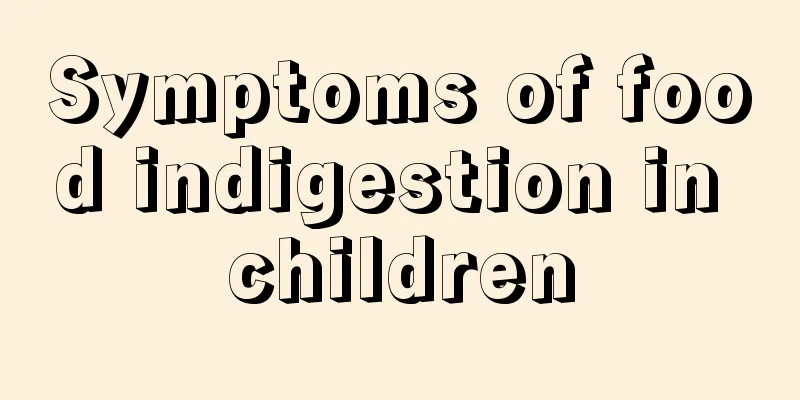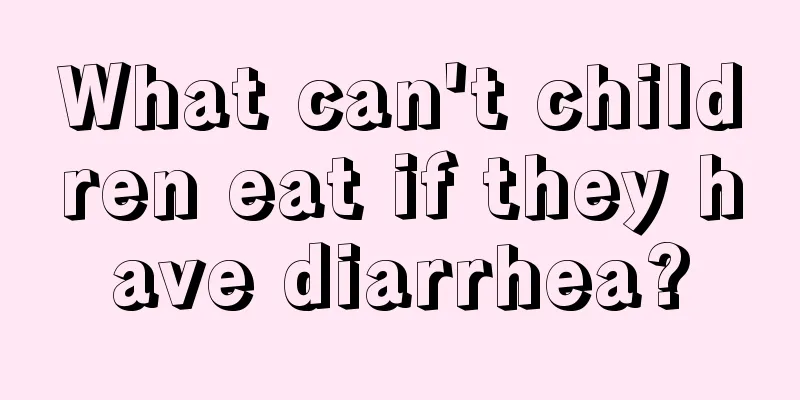How to supplement calcium and zinc deficiency in children

|
Calcium and zinc deficiency is very common in children. More than half of every 10 children suffer from calcium and zinc deficiency. The baby's calcium deficiency is likely because it started during the fetal period. Many babies also suffer from calcium deficiency due to insufficient milk from their mothers. If the baby does not get enough nutrition, the baby's absorption function is incomplete. The reasons are calcium and zinc deficiency. Below we will introduce in detail how to supplement calcium and zinc deficiency in children. Breast milk or formula The best way to supplement calcium and zinc when the baby is young is breastfeeding. If breast milk is insufficient, you can gradually switch to formula feeding. Breast milk is very rich in calcium and zinc, especially colostrum, which is high in zinc. At the same time, the absorption rate of calcium and zinc in breast milk is high, reaching 62%. milk Milk is the best food for calcium supplement. As your baby grows older, you can give him milk to supplement calcium. Consuming 500 grams of milk every day can provide 600 mg of calcium; plus about 300 mg of calcium provided by other foods in the diet, it can fully meet the baby's calcium needs. So what should a baby eat if he is deficient in calcium or zinc? Milk is essential. Complementary food In addition to milk, you can also add appropriate amounts of complementary foods to your baby if he or she is deficient in calcium or zinc. Babies should start to try adding complementary foods from 4 months old. If you want to supplement calcium and zinc, mothers can give their babies egg yolks. When the baby is older, you can add minced lean meat, fish paste, animal liver, oysters, peanut rice flour, walnut kernel powder, etc. In addition, you can also give your baby zinc-fortified foods, such as rice cereal fortified with zinc and calcium. To supplement calcium for babies, mothers should pay more attention to their living habits. They should eat a low-salt diet. The more salt they consume, the worse the calcium absorption will be, and the more calcium will be excreted in the urine. They should get more sun exposure. Vitamin D can regulate the metabolism of calcium and phosphorus in the body and promote the absorption and utilization of calcium. Active vitamin D3 relies on the ultraviolet rays in sunlight to stimulate its activity. They should drink less carbonated drinks: most drinks contain phosphates, which will seriously hinder the absorption of calcium and promote calcium loss. They should eat more foods rich in VD, milk and dairy products, kelp and dried shrimps, soybeans and soy products, and other high-calcium foods. The above content is a complete introduction to why calcium and zinc deficiency is bad for children. I hope parents with babies will understand it in detail. Calcium and zinc are both essential trace elements for the human body and must be supplemented for the baby in time, but do not consume too much. If too much, it will cause poisoning, which will make the baby's body more unhealthy. |
<<: Is iron deficiency anemia dangerous for children?
>>: Diet therapy for mild anemia in children
Recommend
Survival rate of premature infants with small intestinal necrosis
The digestive system of premature babies is not f...
How to treat amblyopia in children? Please do all the work well!
Parents, please take note: if your child has eye ...
13 month old baby milk
A 13-month-old baby is just over one year old. At...
There is an eye on the child's asshole
There is a hole on the child's anus, which is...
What should I do if my child has a bacterial infection and fever?
Because children have weak body resistance, they ...
What are the consequences of untreated precocious puberty?
The problem of precocious puberty needs to be tak...
Knowledge about white tongue coating in children
Children are the flowers of the motherland and th...
What to do if your child writes slowly
Children's slow handwriting is usually a habi...
What to do if your child's head is swollen
Children are lively by nature. If adults do not t...
How can we correct children's stuttering?
When children start to stutter, parents become pa...
What are the signs of normal hearing in a newborn?
After a newborn is born, his facial features and ...
What is the reason for low white blood cell count in children?
What is the reason for low white blood cell count...
What should six-year-old children pay attention to in their diet when their vision is declining?
As our living standards continue to improve, ther...
How to treat amblyopia in children?
We can see that more and more children are wearin...
What should I do if my child has foot pain at night?
Children are usually more active, and excessive e...









